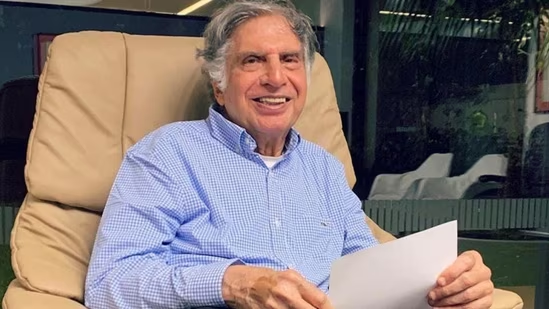Ratan Tata, the revered chairman emeritus of Tata Sons, has died at the age of 86. Just a day before his passing, he addressed health rumors on social media, stating he was undergoing routine medical check-ups related to his age.
N Chandrasekaran, Chairman of Tata Sons, expressed profound sorrow in a statement: “We bid farewell to Mr. Ratan Naval Tata, a remarkable leader whose immense contributions have shaped both the Tata Group and the nation. To me, he was not just a chairperson but also a mentor, guide, and friend. His unwavering commitment to excellence, integrity, and innovation allowed the Tata Group to expand globally while maintaining its moral compass.”
Mr. Chandrasekaran also highlighted Ratan Tata’s philanthropic impact, noting that his initiatives in education and healthcare have left a lasting legacy that will benefit future generations.
Tributes poured in from various sectors as the news spread. Prime Minister Narendra Modi described him as “a compassionate soul and an extraordinary human being.” He praised Ratan Tata’s stable leadership and his significant contributions beyond the business realm, acknowledging his humility and kindness.
Former Congress leader Rahul Gandhi remarked, “Ratan Tata was a visionary. He has made a lasting impact on both business and philanthropy. My condolences to his family and the Tata community.”
Ratan Tata took the helm of Tata Sons in 1991, leading the $100 billion conglomerate until 2012. During his tenure, he oversaw the establishment of Tata Teleservices and led the public listing of Tata Consultancy Services. Notably, in 2008, Tata’s acquisition of Jaguar and Land Rover marked a significant shift, as the Indian company became a symbol of reverse colonialism.
He famously introduced the Tata Nano in 2009, the world’s most affordable car at the time, aimed at making automobile ownership accessible to the middle class.
After stepping down from day-to-day operations, Ratan Tata remained engaged as chairman emeritus of several Tata companies and continued to lead its charitable trusts.
Despite his retirement, he remained a beloved figure on social media, often sharing posts advocating for animal rights, particularly regarding stray dogs. He carried on a tradition established by Jamsetji Tata, ensuring that the Tata Group’s headquarters, Bombay House, was a haven for strays.
Born in 1937 and raised by his grandmother following his parents’ separation, Ratan Tata studied architecture at Cornell University and later completed a management course at Harvard. Throughout his life, he expressed a desire for family, coming close to marriage on several occasions.
He received numerous accolades for his contributions, including the Padma Vibhushan in 2008 and the Padma Bhushan in 2000.
Ratan Tata leaves behind a legacy as one of India’s most influential industrialists and philanthropists, remembered for his vision, kindness, and commitment to societal betterment.

